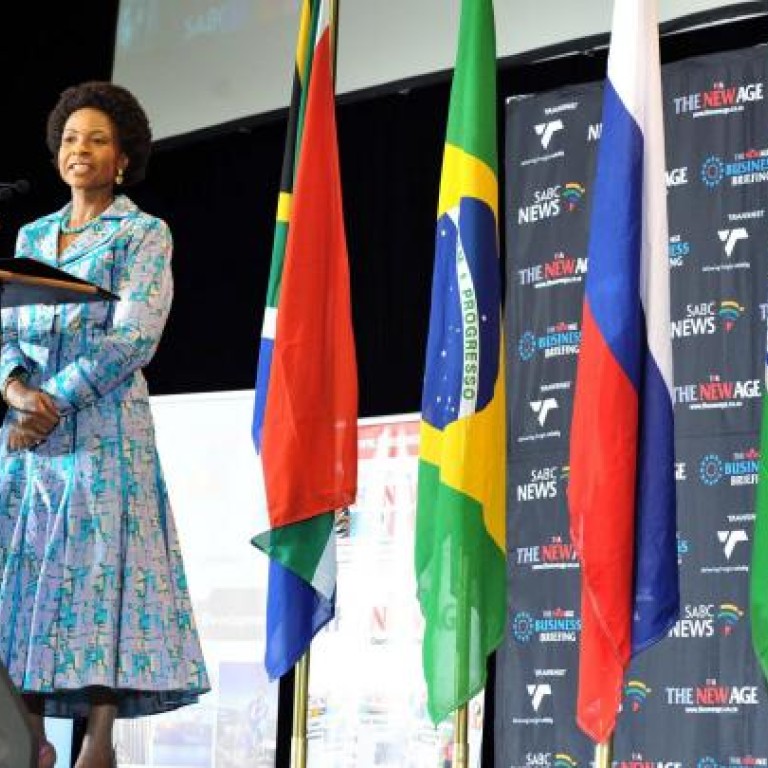
BRICS nations seek to establish rival to World Bank
Emerging powers try to mould planned rival to World Bank to suit their own goals, putting focus on issues that divide them
The BRICS emerging powers yesterday sought a deal on setting up a development bank that would rival Western-backed institutions, as they tried to iron out significant differences ahead of their leadership summit in Durban.
The grouping of Brazil, Russia, India, China and hosts South Africa is racing to flesh out proposals for an infrastructure-focused lender that would challenge seven decades of dominance by the World Bank.
Just hours before leaders were due to kick off the summit, finance ministers were still working on key elements of the plan.
Disputes remain over what the bank will do, with each nation trying to mould the institution to their foreign or domestic policy goals and with each looking for assurances of an equitable return on their initial investment of around US$10 billion.
Failure to secure a deal would be a major embarrassment for many of the participants and would play into the hands of those who argue BRICS nations have little to bind them together.
A failure to take concrete steps would also raise questions about whether the BRICS grouping can even survive.
"Ironically, it may be the cleavages within the BRICS grouping that more accurately hint at the future of the global order: tensions between China and Brazil on trade, India on security, and Russia on status highlight the difficulty Beijing will have in staking its claim to global leadership," said Daniel Twining, of the German Marshall Fund.
But if the leaders succeed it would be the first time since the inaugural BRICS summit four years ago that the group's stated wish for a more equitable global order is matched by concrete steps to make it happen.
That would send a loud message to the United States and European nations that the global balance of power as it is now is unworkable.
Diplomats say it could start with US$10 billion seed money from each country, but the exact role of the bank is up for debate.
Indian officials have pressed for a BRICS-led development bank that serves developing countries by recycling budget surpluses into investment in these nations.
Many developing nations inside and outside the BRICS will hope that is a way of tapping China's vast financial resources.
China, meanwhile, would no doubt like the bank to invest in trade-multiplying projects.
"It will be some time before it will be feasible for this bank to start financing say, a railway project," Simon Freemantle, an analyst at Standard Bank Group, Africa's biggest lender, said in Durban yesterday. "That is some way out."
Aside from the development bank, the group will also try to establish a foreign exchange reserve pool worth as much as US$240 billion to be drawn on in times of financial crises.
Later yesterday, Brazil was to sign a bilateral accord with China to promote trade in their national currencies. BRICS leaders will also establish business and think- tank councils.
With Syria's two-year-long civil war escalating through the suspected use of chemical weapons, BRICS leaders will also have to weigh a call from President Bashar al-Assad to intervene.
